European Investment Bank Vice-President: Investors are not sure whether the reforms in Uzbekistan are long-term (video)
On September 23-24, the Vice-President of the European Investment Bank Vazil Hudák visited Uzbekistan to sign a Memorandum of Understanding with the Ministry of Investment and Foreign Trade on the Aral Sea Rehabilitation Project. Within the framework of the MoU, the EIB will allocate Uzbekistan €100 million to support the government in achieving one of its national priorities and protect the environment in the Aral Sea region.
To know more about the project, the current state of bilateral relations between the bank and Uzbekistan and future plans for cooperation, Kun.uz correspondent held an interview with VP Vazil Hudák.
What is the current level of cooperation between the European Investment Bank and Uzbekistan and how would you assess the prospects for its further development?
We started our cooperation quite recently. The co-op agreement between the European Investment Bank and the Government of Uzbekistan was signed in February, 2018. So, de facto, it has been only one and a half year since we began our collaboration. But during this quite short period of time we have developed an active agenda of projects; we signed a €20 million-worth agreements to support the government financially and we have plans to allot another €400 million to implement several other initiatives.
The work is developing very quickly. We see many opportunities in Uzbekistan because of dynamic changes taking place in the country.
You attended the International Investment Forum on Tourism in Tashkent last year in November as the head of the European Investment Bank delegation. Could you please tell us about the results of the forum?
I should note that Uzbekistan has a beautiful nature and lots of opportunities to develop its tourism industry. We take tourism as one of the directions of cooperation with your country and our role is to support the sustainable development in general.
For tourism development you need many services which will help make Uzbekistan even more attractive for tourists coming here. It includes municipal services, water management, waste management, sanitation and others. That’s why our main focus has been on structural changes in the country by improving the energy efficiency of enterprises, developing alternative energy sources and bringing drinking water to the population of Uzbekistan where it is not available.
Many investors before coming to Uzbekistan hesitate a lot. What do you think is the primary cause of this? Why are they so cautious about investing in Uzbekistan?
Radical changes in the country happened quite recently, in the last three years I can say. So I think many investors are not sure whether these changes are long-term, sustainable and whether the reforms introduced will continue or whether there will be some backlash. Because it does happen when people face such dramatic changes while moving towards market economy.
There are questions about overall development of this region. We know that this is an area which is heavily influenced by growing China, Russia has obviously its own interests, Turkey, Iran and others. So I think that investors want to see that the process of reforms is long-term and sustainable. They want to know what the strategy of the country is in this very dynamic and complex region.
You are signing a Memorandum of Understanding with Uzbekistan on the Aral Sea Rehabilitation Project. What are the primary objectives of this document?
Right, we are signing a Memorandum of Understanding with the Minister of Investment and Foreign Trade on the Aral Sea Rehabilitation Project and within the framework of this document we will be providing over €100 million for the rehabilitation of the region.
I should note that this is not just a local problem, but a global issue. The European Investment Bank has plans, by 2025, to direct 50 percent of all its lending worldwide to environmental projects. We have an ambition of becoming a climate bank of the European Union. Climate and climate-related projects are really important for us.
As for the Aral Sea, we want to support different measures aimed at improving the irrigation system in the region. Besides, we plan to help with desalinization, which is a major problem.
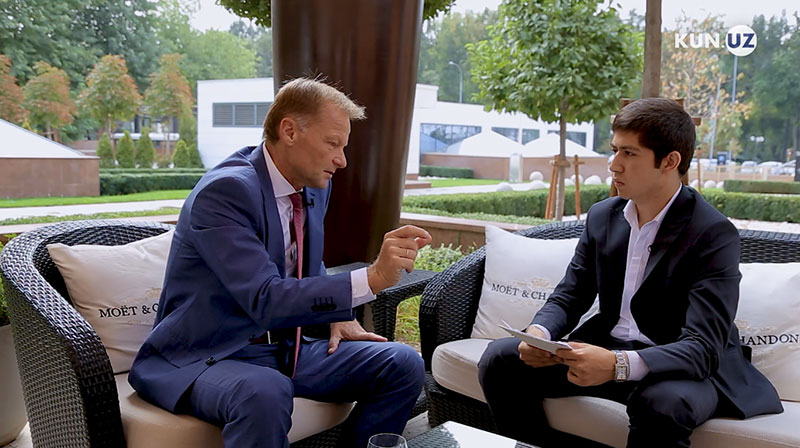
What recommendations would you give to Uzbekistan to improve its investment attractiveness?
I think what investors want is predictability – they want to be sure that these reforms are long-term and stable, they want to be guaranteed that their rights and properties are protected and they want the decision-making process to be fast. Bureaucracy should be reduced as much as possible, there should be quick response to investors, and a welcoming approach helps a lot too.
What are some future projects to be implemented between the bank and Uzbekistan?
We have many projects planned with the government of Uzbekistan, they are mostly linked to environmental issues. For example, we want to help in dealing with such problems as waste management, which is a big issue here in Tashkent.
Over 500,000 tons of municipal waste is produced in your capital city every year and a landfill site is not far away from the city center. We want to work in cooperation with the administration of Tashkent to improve the situation.
We are also finalizing projects on energy efficiency, which aim to decrease energy consumption in certain corporations and enterprises of Uzbekistan.
Related News
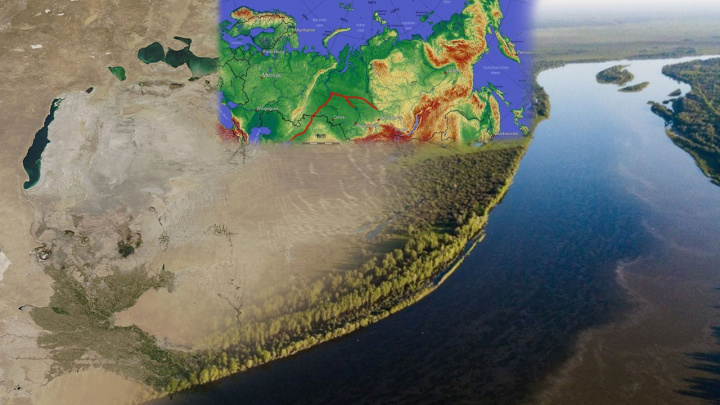
16:17 / 20.11.2025
Reviving the mega-canal: Could Siberian water save the Aral Sea?
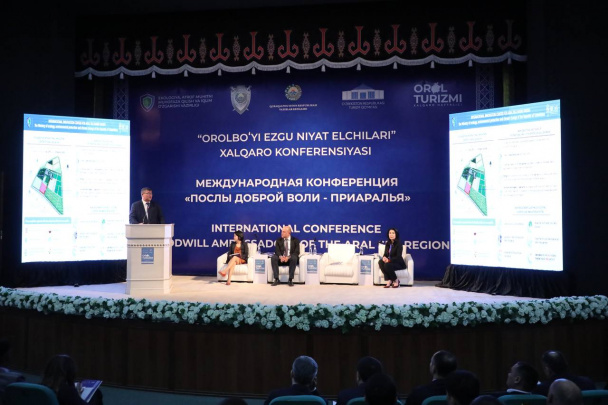
22:05 / 20.04.2025
Scientific approaches to the sustainable development of the Aral Sea region were presented
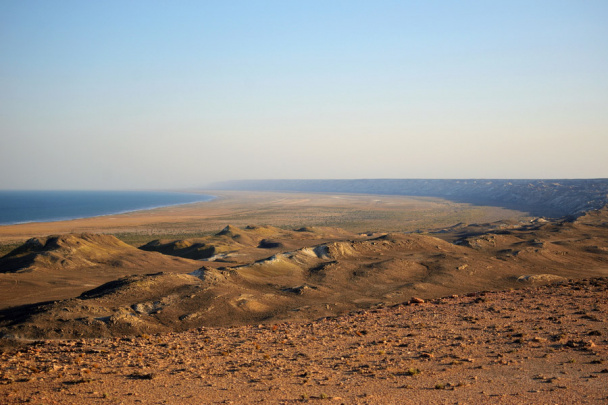
15:21 / 19.04.2025
New research links Aral Sea bed uplift to massive water loss
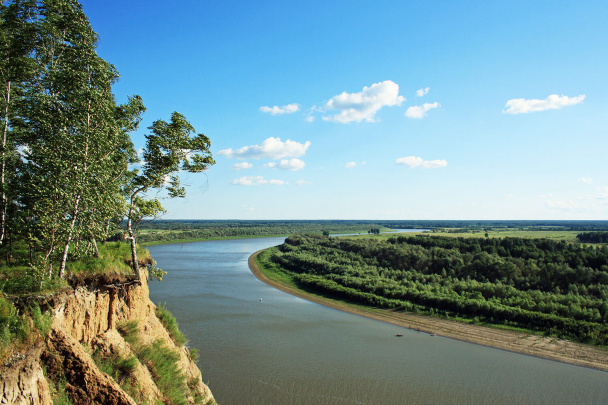
14:37 / 29.03.2025




